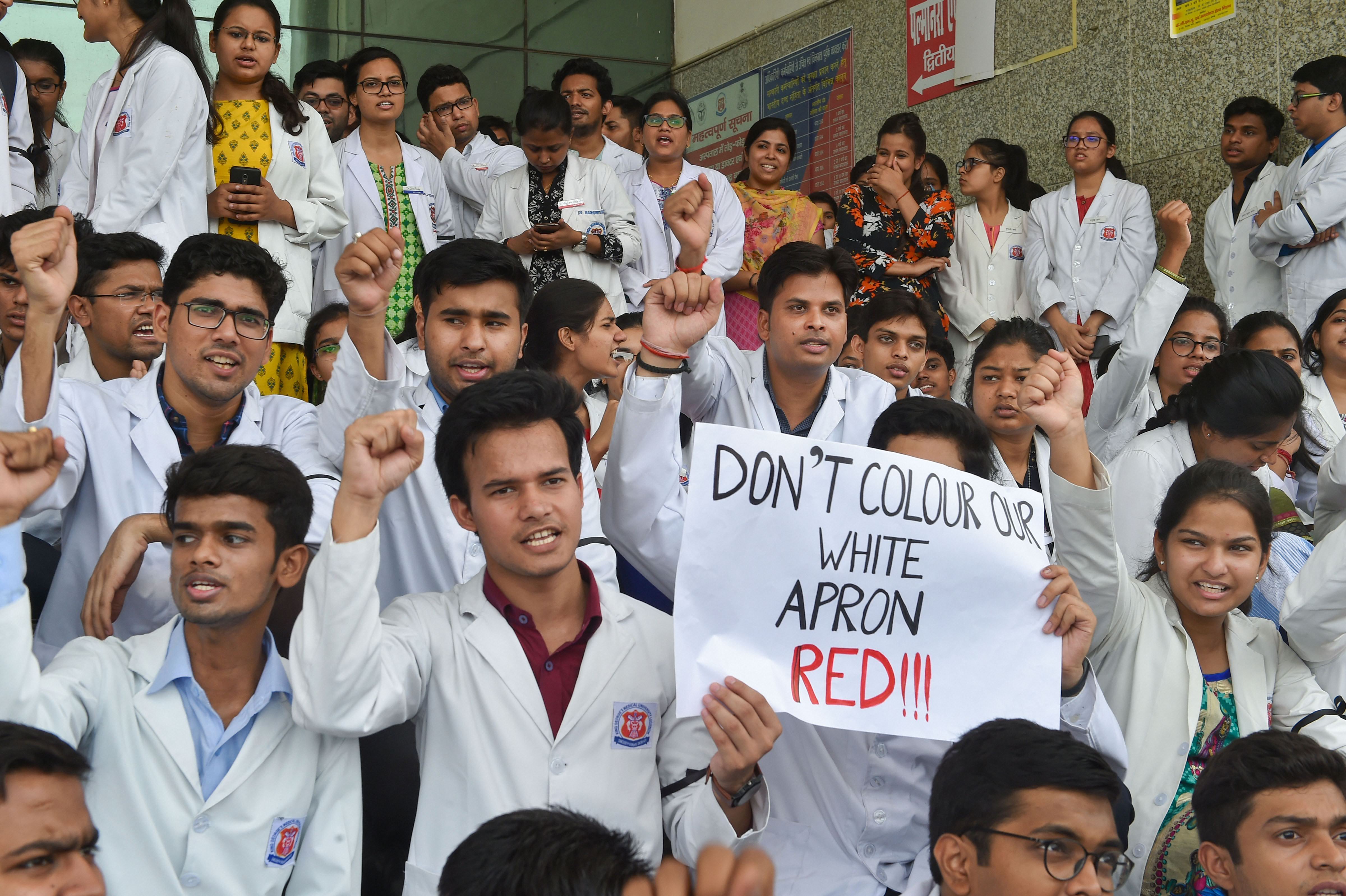
Law ministry, MHA spanner against draft bill on violence against docs

Citing ambiguities and loopholes, the ministry of home affairs and law and justice have asked the health ministry to revisit some of the provisions in the draft legislation that seeks to check violence against medical professionals.
The health ministry intends to introduce in the ongoing session of Parliament the Health Services Personnel and Clinical Establishments (Prohibition of Violence and Damage to Property) Bill, 2019 that seeks to punish people who assault on-duty doctors and other healthcare professionals by imposing a jail term of up to 10 years.
The home ministry, during an inter-ministerial consultation, observed that while as a general rule, a non-bailable offence carries a term of imprisonment of three years or more, the proposed bill mentions that “all offences under this act are cognizable and non-bailable” but the offence under Section 5(1) carries minimum sentences of six months. “The offence under Section 5(1) of the proposed bill should, therefore, be bailable offence,” the ministry said.
In the draft law, the Clause 5 which deals with the offences and penalties states that whoever commits violence or abets or incites commission of violence against any healthcare service personnel or abets or incites or causes damage or loss to any property of a clinical establishment, shall, upon conviction, be punished with imprisonment for a term not less than six months but which may extend to five years.
It also mentions a fine which will not be less than Rs 50,000 and may extend to Rs 5 lakh.
The home ministry further pointed out that the level of investigating officer for the cases under the proposed bill has been prescribed as not below the rank of deputy superintendent of police (DSP).
“This needs to be reconsidered as there are not many police officers of the levels of DSP or above in a district,” it suggested.
The law ministry said that prescribing investigation by such a high-ranking officer might be counterproductive and suggested the Health Ministry to keep it at the level of an inspector-rank officer.
The law ministry in its observations suggested that as per Section (5) of the draft bill, different quantum of imprisonment ranging from 6 months to 10 years have been provided and such situation may create “ambiguity regarding the court of appropriate jurisdiction for conducting trial of various offences as prescribed in Section 5 of the draft bill.”
“It is thus suggested that a provision may be incorporated to make the offences under the bill/act triable by a designated court/special court,” it said.
The law ministry observed that the proposed bill does not have any provision prescribing time limits for completing investigation and filing of charge sheet, and suggested that suitable provisions for filing of charge sheet in 60 days may be incorporated in the bill.
“In such a situation, even after the registration of case there would be delays in filing of charge sheet which may frustrate the very purpose of the act,” it said.
It also proposed that for effective implementation of the statute a time limit of one year should be prescribed for conclusion of the trial.
The draft bill also provisions for compensation which could be twice the market value of a property damaged and Rs 1 lakh to Rs 5 lakh for being assaulted or hurt.
In case of non-payment of compensation by a convict, the amount may be recovered as arrears of land revenue under the Revenue Recovery Act, 1890, sources said.
“The compensation for damaged property has been based on fair market value which is ambiguous and likely to create confusion and debate,” the law ministry observed, adding that some procedure for definite/determined compensation may be prescribed.
Alternatively, it may be left to the court to determine the compensation, it said.
The call for a comprehensive central legislation has gained momentum in the backdrop of rising instances of violence against healthcare service professionals and damage to the property of clinical establishments across the country.
Healthcare professionals include doctors, paramedical staff, medical students, diagnostic service providers in a health facility and ambulance drivers.

